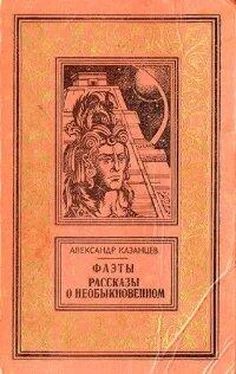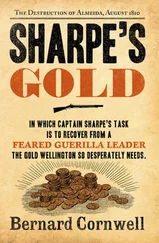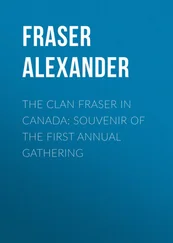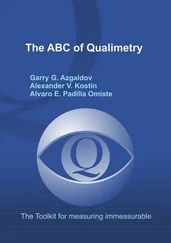Alexander Kazantsev - The Destruction of Faena
Здесь есть возможность читать онлайн «Alexander Kazantsev - The Destruction of Faena» весь текст электронной книги совершенно бесплатно (целиком полную версию без сокращений). В некоторых случаях можно слушать аудио, скачать через торрент в формате fb2 и присутствует краткое содержание. Город: Moscow, Год выпуска: 1989, ISBN: 1989, Издательство: Raduga, Жанр: Фантастика и фэнтези, на английском языке. Описание произведения, (предисловие) а так же отзывы посетителей доступны на портале библиотеки ЛибКат.
- Название:The Destruction of Faena
- Автор:
- Издательство:Raduga
- Жанр:
- Год:1989
- Город:Moscow
- ISBN:5050024676
- Рейтинг книги:3 / 5. Голосов: 1
-
Избранное:Добавить в избранное
- Отзывы:
-
Ваша оценка:
- 60
- 1
- 2
- 3
- 4
- 5
The Destruction of Faena: краткое содержание, описание и аннотация
Предлагаем к чтению аннотацию, описание, краткое содержание или предисловие (зависит от того, что написал сам автор книги «The Destruction of Faena»). Если вы не нашли необходимую информацию о книге — напишите в комментариях, мы постараемся отыскать её.
The Destruction of Faena — читать онлайн бесплатно полную книгу (весь текст) целиком
Ниже представлен текст книги, разбитый по страницам. Система сохранения места последней прочитанной страницы, позволяет с удобством читать онлайн бесплатно книгу «The Destruction of Faena», без необходимости каждый раз заново искать на чём Вы остановились. Поставьте закладку, и сможете в любой момент перейти на страницу, на которой закончили чтение.
Интервал:
Закладка:
“How can you say all that?” shouted Toni Fae, clenching his fists. “My mother was there, and my little sisters…”
“My mother was there too,” replied Ave Mar sadly.
Toni Fae began sobbing. Gor Terr drew him towards himself, patting him on the shoulder.
Ave and Mada exchanged glances and said more by doing so than could ever have been conveyed in words. Then they held hands.
“So that’s why there were no electromagnetic communications,” said Toni Fae, still sobbing. “War had started up there.”
“And on the Mar stations?” boomed Gor Terr.
“Perhaps on them too,” confirmed Ave Mar sadly.
“No, no!” protested Toni Fae, looking in terror at Ave with eyes full of tears. “It can’t be possible out there too!”
Ave shrugged his shoulders.
“There are Faetians on them as well.”
“Ala Veg is there!” shouted Toni Fae. “She’s not one of them!”
“Calm yourself, Toni Fae,” said Mada gently. “I think we should still tell Dm Sat about the end of Faena.”
“Wretched carr-rion-eaters! Why couldn’t they value what they had? They’ve destroyed thousands of millions of lives! How much higher and more humane the local Faetoids are!”
As he shouted this, Gor Terr charged round the cabin in a frenzy.
“Calm down, friend Gor Terr,” said Ave. “It’s hard for us to bear the horror that’s come down on all of us when we’ve not only lost our dear ones, but…”
“Towns, fields, r-rivers, forests, seas, oceans!” wailed Gor Terr.
“Yes. And oceans,” confirmed Ave Mar sadly.
Gor Terr glared at him almost with hatred.
Then he sighed and said very quietly this time:
“Yes, it’s easier for you. There are two of you.”
“There are five of us,” said Mada.
“If the Elder survives the shock.”
“He has been readying himself for it too long,” replied Mada. “He saw it all coming.”
“I was the one who didn’t see anything coming. I was dreaming about new spaceships, about wonderful cities on new planets, about incredible machines that I was inventing in my mind.”
“It will all have to be done on Terr,” said Mada softly.
Gor Terr burst into a roar of forced laughter.
“Forget about civilisation once and for all, forget about technology. Make clubs and stone axes. If you have children, you won’t be able to teach them anything that the unhappy Faetians knew. Civilisation means workshops and Faetians toiling in them. Civilisation means writings that preserve the treasures of thought. All that is gone, gone, gone! And it cannot exist here either!”
Gor Terr was shouting in a frenzy. Toni Fae was frightened by this fit of fury, but his attention was distracted by a signal from the electromagnetic apparatus. The indicator lamp was winking on and off. The astronomer rushed to the set.
“At last! Now the nightmare is over! You see, they’re worried about us, they want to tell us that it was a supernova, not Faena at all. How could we have assumed such a thing?”
The Faetians watched Ton! Fae, each trying to retain at least a glimmer of hope.
Finally the chesty voice of a Faetess was heard in the cabin. Toni recognised it as Ala Veg’s.
“Quest! Quest! Quest! Can you hear me? There has been a dreadful catastrophe! We shall never have a homeland again. Faena has blown up for some unaccountable reason, although it was recently intact, in spite of a disintegration war that broke out on it. Quest! Quest! Quest! Hostilities between Deimo and Phobo have ceased. If you too have been fighting amongst yourselves, stop the conflict. There aren’t any more Gutturals and there aren’t any more Superiors. There are only three small groups of unhappy Faetians who have lost their homeland. Are you alive? If only you are still alive! Can we live on Terr?”
Ave Mar put out the light in the observation cabin. The starry sky was now clearer than ever, and so was the new star blazing in it, the malignant Star of Hatred.
Did an exploded planet actually exist in the Solar System?
In 1596, when he was investigating the laws governing the structure of the Solar System, Kepler suspected there might be a planet missing between Mars and Jupiter. At the end of the 18th century, the scientists Titius and Bode gave a series of numbers: 0.4—0.7—1.0—1.6—2.8—5.2… It reflected the distance of the planets from the Sun. The distance of the Earth from the Sun was taken as unit. But there was no fifth planet with an Earth-Sun distance of 2.8. The astronomers searched and began discovering, one after another, the “minor planets” and even smaller bodies, or asteroids, which were moving on a common orbit. They were fragmentary in shape and seemed to have formed during the DISINTEGRATION of a destroyed planet. The German astronomer Hermann Oberth 150 years ago expressed the hypothesis that such a planet had once existed. In our own times, Professor Sergei Orlov, analysing this hypothesis, gave the planet the romantic name of Phaeton. His work was continued by Academicians Alexander Zavaritsky and Leonid Kvasha. Soviet research, notably that of Yekaterina Gusakova, has shown that the residual magnetism of the meteorites could be explained only by their magnetisation as parts of a big mother planet. Felix Zigel (1963) determined its size as approaching that of the Earth. However, neither the advocates nor the opponents of this hypothesis have successfully accounted for the destruction of the planet. If Phaeton blew up like a high-explosive bomb, its fragments would have flown apart in elongated elliptical orbits round the Sun, but they have remained in their old circular orbit… If two cosmic bodies had collided in space, then their fragments would also have flown in elliptical orbits and would not have formed a ring on the former orbit of the planet. It is suggested that meteorite swarms form in at least ten places on the ring of asteroids. It is possible that they are created by the collision and disintegration of the former planet’s fragments. Meteorites are falling on Earth to this day, but they include so-called tektites which, perhaps, fell on Earth only once as a consequence of a colossal nuclear explosion in space. All the more so that the form, composition and dehydration of the tektites are identical with nuclear slag.
Thus, a supposition about the cause of its destruction has been added to the hypothesis of a Phaeton that existed in the past.
PART THREE
Fragments
Where be these enemies?— Capulet! Montague!
See what a scourge is laid upon your hate…
Chapter One
TWILIGHT
The new star shone ominously in Quest’s porthole.
The Faetians maintained a shocked silence.
Suddenly, Gor Terr jumped to his feet.
“Technology! Damned technology! It’s to blame for everything. I, Gor Terr, the last of Faena’s engineers, am the first to r-renounce civilisation! To the forests! To the forests! To the caves! Wild Faetians on a wild Terr!” he boomed, foaming at the mouth. “If anyone r-refuses to leave the r-rocket. I’ll wring his neck. Let not a single metal part r-remind wretched people that they were once cultured. Beasts are much higher and nobler!”
His friends tried to calm the engineer down, still unwilling to admit to themselves that his mind had become clouded.
“Please try to understand, Gor Terr,” said Ave reassuringly, “that the five Faetians left on Terr can only have one purpose—not just to survive, but to preserve civilisation, to hand down the heritage of reason to future generations…”
“R-really?” roared Gor Terr with a glare at Mada.
Читать дальшеИнтервал:
Закладка:
Похожие книги на «The Destruction of Faena»
Представляем Вашему вниманию похожие книги на «The Destruction of Faena» списком для выбора. Мы отобрали схожую по названию и смыслу литературу в надежде предоставить читателям больше вариантов отыскать новые, интересные, ещё непрочитанные произведения.
Обсуждение, отзывы о книге «The Destruction of Faena» и просто собственные мнения читателей. Оставьте ваши комментарии, напишите, что Вы думаете о произведении, его смысле или главных героях. Укажите что конкретно понравилось, а что нет, и почему Вы так считаете.












